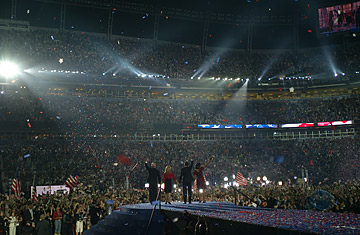
After Ronald Reagan's landslide victory over Jimmy Carter in 1980, Democratic Party insiders decided to give themselves a bigger role in choosing a nominee. To steer the party toward more electable choices, they created the monsters known as superdelegates. Unlike standard delegates to the national convention, who are selected by voters in primaries and caucuses, the supers — simply because they hold key public or party offices — are entitled to cast a vote for the nominee of their choosing.
Obama's string of 13 primary and nine caucus victories in February left Hillary Clinton with only one path to the nomination — winning a disproportionate share of the more than 800 unelected superdelegates. They ranged from the world famous (Al Gore had superdelegate status as a former Vice President) to the obscure (21-year-old college student Jason Rae won his position after serving as an activist in Wisconsin politics).
Both campaigns swarmed over these officials, learning their views, memorizing their hobbies, bombarding them with appeals to come on board or walk away from the other side. And when charm failed, there was plenty of old-fashioned arm-twisting. For several months, the supers enjoyed a level of attention and notoriety they had escaped for over 20 years. While some were genuinely torn between the new star and the iconic party heroine, nearly all eventually fell in line behind Obama. Most felt he had a better chance at capturing the hearts of independents, beating John McCain, and didn't want to take the nomination away from an African American who had won at the ballot box. The superdelegates sealed Clinton's fate.